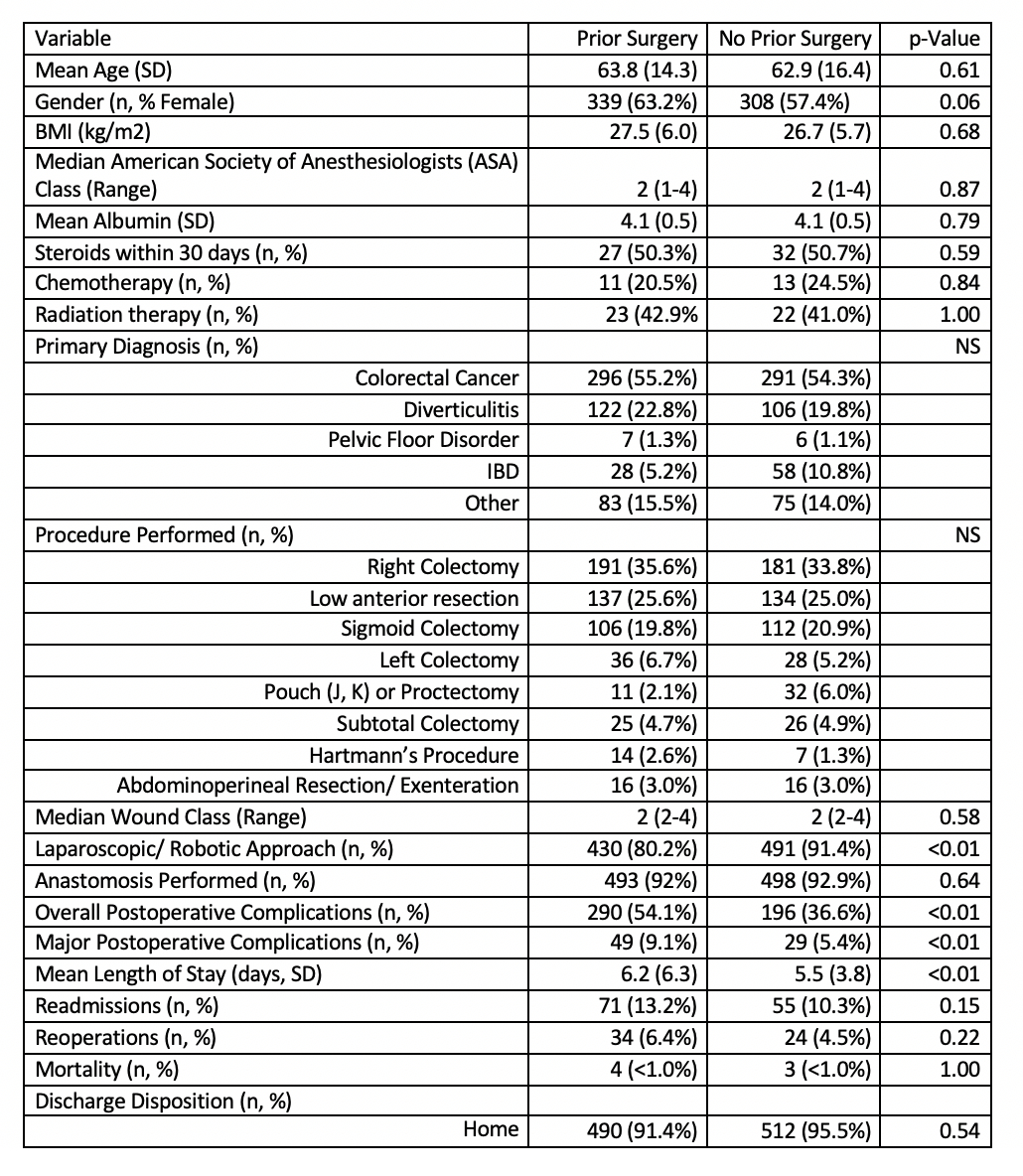THE IMPACT ON PRIOR ABDOMINAL SURGERY ON POSTOPERATIVE OUTCOMES IN COLORECTAL SURGERY
Thais Reif de Paula*, Deborah S. Keller, Ahmed M. Al-Mazrou, James M. Kiely, Daniel P. Geisler, Steven Lee-Kong, Daniel Feingold, Ravi P. Kiran
Surgery, Division of Colorectal Surgery, Columbia University Medical Center, New York, NY
Background: Previous abdominal surgery increases operative time and complexity but current risk stratification tools do not include this variable. Our goal was to evaluate the impact of prior abdominal surgery on postoperative outcomes in elective colorectal surgery.
Methods: A prospectively maintained divisional database from a tertiary referral center was reviewed for consecutive elective patients undergoing a colorectal resection via an abdominal approach between 1/1/2013 and 6/1/2018. Patients were stratified into prior abdominal surgery and no prior surgery cohorts, then matched on patient and disease specific characteristics. The main outcome measures were the length of stay (LOS), rates of overall and major (Clavien Class III and greater) complications, readmissions, reoperations, and mortality.
Results: During the study period, a total of 1,072 matched patients were evaluated- 536 in each cohort. The patients were well matched by age, gender, body mass index, co-morbidities, pre-operative albumin level, and indication for surgery. The primary diagnosis was colorectal cancer (55.2% vs. 54.3%, p=NS) and the main procedure performed a right hemicolectomy (35.6% vs. 33.8%, p=NS) in the prior and no prior abdominal surgery groups, respectively. Most patients had an anastomosis performed (92% vs. 92.9%, p=NS). The majority had surgery through a minimally invasive approach, but there were significantly more minimally invasive surgery cases in the no prior surgery group (91.4% vs. 80.2%, p<0.01). Postoperatively, the prior abdominal surgery group had a significantly longer LOS and higher rates of overall and major complications (all p<0.01). The occurrences of readmission, reoperation, and use of post-discharge nursing facilities were higher with prior abdominal surgery but did not reach statistical significance. The rates of mortality were comparable across groups.
Conclusions: In a matched sample, prior abdominal surgery was a risk factor for worse postoperative outcomes in elective colorectal resections, associated with significantly longer LOS, overall and major complications. Readmission, reoperation, and use of post-discharge nursing facilities were also higher with prior abdominal surgery, which may be clinically significant and affect healthcare costs. These data suggest that current risk stratification systems and quality metrics may be fallible unless previous abdominal surgery and other factors that increase technical complexity are also included when evaluating surgeon and institution performance and quality.
Back to 2019 Posters




